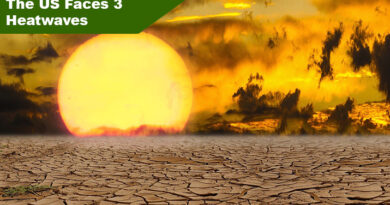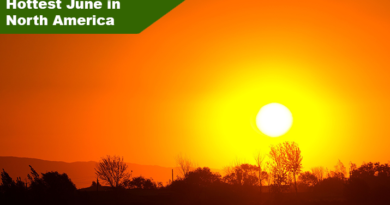Extreme Heatwave in Canada Results in Hundreds of Deaths
Over the past week, Canada has experienced the hottest heatwave in its history. Not only did it surpass the previous record, the temperature completely shattered it. And without proper warning, resulted in over 700 sudden deaths.
At its peak, the temperatures reached a blazing 49.6C (121F). Not only did this have a severe impact on any of the residents, but it also sparked over 240 wildfires in British Columbia province. For reference, the previous record temperature was 45C (113F).
This is just another visible example that climate change is already here.
Why Are People Dying?
While the exact nature of the deaths in Canada is not currently known, they were very sudden and occurred during the heatwave. There are many ways that heatwaves can kill, so let’s cover them.
One of the most well-known threats humans face is heatstroke. This occurs when the body can no longer cool itself through sweating. This results in a rapid increase in body temperature.
In just 10 to 15 minutes, you can reach a temperature of over 106F. If emergency treatment is not applied, this can result in death or disability.
Another major concern is dehydration. The higher temperatures force humans to sweat profusely. Sweating is how humans cool their body temperature naturally, but this accelerates dehydration.
Thus, you need to stay hydrated when exposed to higher temperatures.
In one of the worst recorded heatwaves in the world’s history, over 70,000 people died in Europe in 2003. Canada got lucky.
Other Impacts of Heatwaves

Heatwaves can also affect humanity in a variety of ways outside of health.
One of the biggest is the effect on crops. While the heatwave in Canada is not having this impact, the one in Russia in 2010 (50,000 deaths) did. It severely destroyed the wheat crops. As a result, Russia could not export to other nations.
This actually led to food riots in the middle east.
Heatwaves can also result in droughts throughout the region, at least when they last for long periods of time. Alternatively, if the heatwaves occur often enough, this can also cause droughts.
And let’s not forget the wildfires. The heatwave in Canada has also sparked over 240 fires.
This not only costs money to contain and suppress the fires but can even spread to nearby towns. Thus, increasing the cost of the fire.
It also releases more carbon dioxide into the atmosphere, speeding up climate change.
Are We in A Mega-Heatwave?
Mega-heatwave is still a relatively new term that refers to an above-average heatwave that lasts for a prolonged period of time.
The first one occurred in 2003 in central Europe and the second in 2010 in Russia. And now, many have begun to referring to the current heatwave as the third in North America.
Both Canada and the United States have been seeing some intense summer heat with no end in sight. And there is no doubt that climate change is making the entire situation worse.
In fact, 2020 was the hottest summer in history for the US, but 2021 might be able to top it if this continues.

Robert has been following and writing about environmental stories for years at GreenGeeks. He believes that highlighting environmentally friendly practices can help promote change in every household.


